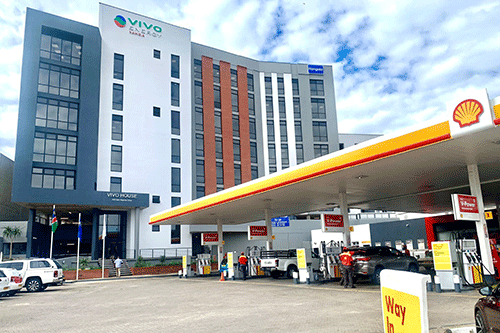The Namibian Competition Commission (NaCC) on Wednesday pronounced itself on the proposed acquisition of Triple J Energies Proprietary (GasIT) by Vivo Energy Namibia (Vivo Namibia).
The commission’s director of mergers and acquisitions, Johannes Ashipala, broke the ice that “after due consideration, the commission recommends the prohibition of the transaction”. This is however only a preliminary decision.
GasIT is a 100% Namibian company, specialising in liquefied petroleum gas (LPG) bulk and cylinder distribution since 2012.
Vivo Namibia was established in 2012, following the acquisition of Namibia’s downstream business from Shell. As a Shell licensee, the company serves the retail and commercial market segments in Namibia, supplying fuel and lubricants to key sectors of the economy, such as transport, construction, mining and agriculture. The company also operates bulk oil storage terminals in the key towns of Walvis Bay, Windhoek, Oranjemund and Tsumeb.
Ashipala explained the commission’s decision was well-informed of some concerns that may come about from the transaction. The transaction is further classified as a vertical merger.
According to theories, a vertical merger is the merger of two or more companies that provide different supply chain functions for a common good or service. Most often, the merger is affected to increase synergies, gain more control of the supply chain process and ramp up business.
“The transaction is merger specific and substantial, but our concern is that firms should not gain market power through mergers and acquisitions because they might use this against customers and competitors,” said the director.
Some of the possible merger impacts from the proposed transaction, Ashipala listed, include vertical foreclosure, raising rival costs and barriers to entry in the market. He added there are no remedies for these concerns.
He made these remarks at a recent stakeholder’s conference, organised by NaCC on the proposed acquisition. The event served as a platform where the commission shared details of the proposed acquisition and obtains representations from parties involved in the transaction. The event also served as a platform to receive input from concerned parties before the commission made a determination on the matter.
However, the decision did not sit well with the merging parties. Speaking on behalf of the entities, HB Senekal, an executive lawyer at ENSafrica, said a foreclosure strategy is not possible because there are already other existing suppliers in the region.
He further refuted that there are no remedies to the concerns raised by the commission. He stated the mergers in the submission offered a remedy on a non-exclusive basis.
“My worry is that some factors were not taken into account in the assessment that led to your conclusion. Any player can enter the market because of the absence of LPG regulations in the country,” said Senekal.
The lawyer also noted that Vivo Namibia owns only 27% of the domestic petroleum sector, leaving 73% to other suppliers. He said there are a variety of point-of-sale services due to the absence of regulations.
Meanwhile, NaCC CEO Vitalis Ndalikokule explained that mergers can potentially reduce market competition by creating dominant market players, leading to high prices, reduced choices and diminished innovation.
“By reviewing and regulating measures, the commission aims to prevent these anti-competitive effects and promote market efficiency for the longer-term sustainability of the sector for the benefit of all stakeholders,” Ndalikokule noted.
He continued that vertical mergers can lead to the foreclosure of rivals or limit their access to essential output, input or distribution channels. Vertical mergers can also enhance the merged entities’ bargaining power and allow them to extract more favourable terms from suppliers and customers. This, said the CEO, can disadvantage competitors or lead to higher costs for downstream firms.
The NaCC assess mergers on a case-by-case basis, considering factors such as market structure, market shares, potential entry or expansion in the likelihood of anticompetitive effects, among others.
The proposed merger is in the LPG sector, which lacks Namibian regulation. At national level, Ndalikokule stated that LPG contributed about 8.1% of the energy source for cooking and about 2% for heating, given a high urbanisation rate.
Moreover, deputy director of the mines ministry Immanuel Nghishoongele stated the ministry is reviewing both upstream and downstream legislation.
“We are reviewing the laws to incorporate all the issues that have been brought up, and the LPG regulation is one of them to be taken into account,” said Nghishoongele.
The latest recommendation by the commission is purely preliminary. All additional submissions made on Wednesday will be considered and a final decision presented to the board of commissioners for approval.
Only then will any decision made by the commission be final.



